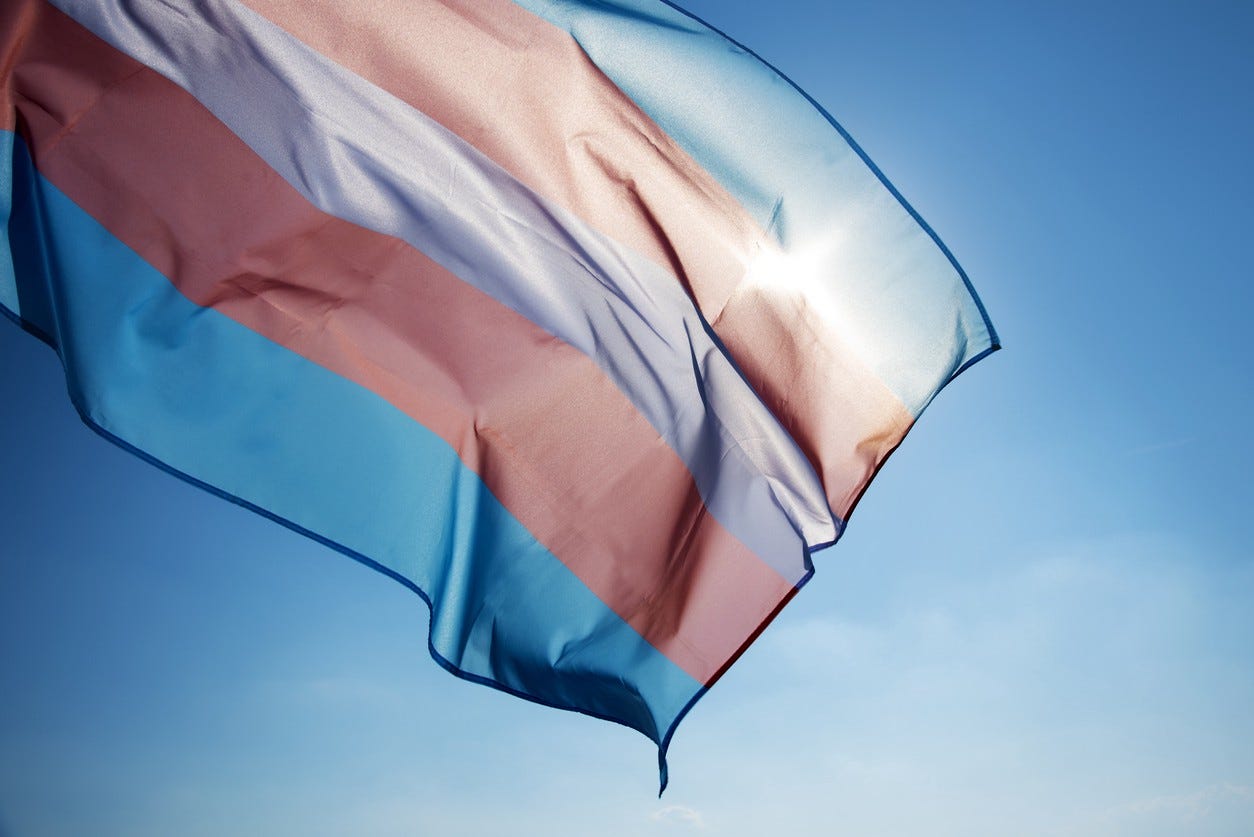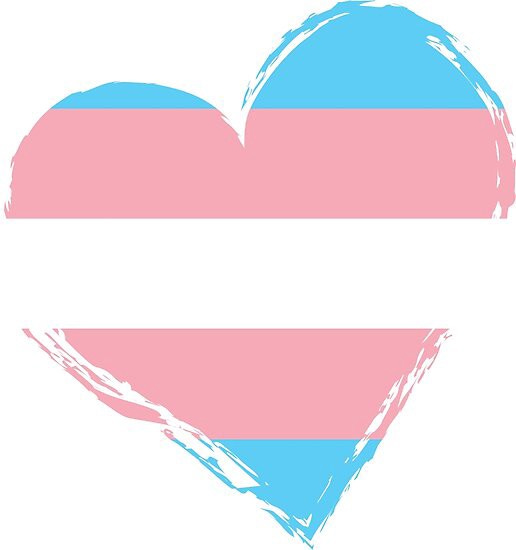Transitioning at Work
Like many people, the time I spent during the pandemic, outside of the usual social and professional circles, gave me time to reflect upon my life. This led me to finally accept that, for the majority of my life, I’d hidden part of myself away from the world. I accepted that I was, in fact, trans. I wanted to write this to explain why I believe that companies should support their employees who go through this and how we can all benefit from this.
Let’s start at the beginning.
Over 40 years ago I was born in a small hospital in Suffolk and, as is the norm, both then and now, the doctor looked at my genitalia and decided what gender I would present to the world and that I would be a boy. The decision the doctor made determined the pronouns that people would use for me and largely, whether I would have innate male privilege.
Until fairly recently; this doctor’s decision has shaped how people have seen me. Since puberty; I’ve struggled silently for many years with undiagnosed gender dysphoria; the feeling that how I see myself internally is at odds with how other people see me. Like most people who class themselves as trans, I had an ongoing hidden battle to fit neatly into the gender binary of being either a boy or being a girl. When comparing myself with other boys or men around me, I didn’t recognise myself in any of them. I felt much more comfortable hanging around with girls, those who would tolerate a male presence in their ‘gang’, at least. I never understood why until I admitted to myself that I was transgendered and not, as I internally felt for many years, a disgusting freak.
This phrasing is deliberate; people who live outside of the gender and sexuality ‘norms’ were used as the butt of many a joke growing up, by the media and society at large. For those of you, like me, who grew up in the 80s and 90s, cast your mind back to the role models we had, Boy George is the only one I recall who was visibly gender non-conforming and he was hardly spoken of highly in most places. There were whispers about people such as Lili Elbe (the inspiration for the ‘Danish Girl’ film) and Christine Jorgensen but certainly hidden away from the mainstream and never discussed in a positive way. I remember reading about them in weird old books and being utterly fascinated that such a thing was possible. Other people thought they were mentally ill or disturbed rather than amazing women just trying to live their truths.
I remember reading my grandfather’s copy of the Sun (I’m sorry, I didn’t know any better at that age) and seeing headlines containing the phrases ‘Gender Benders’, ‘Tranny MP’ and ‘Sex-Swap Shocker’ and seeing the disgust and hatred coming from those pages. Most papers were the same in those days and still are (though the language is generally a little more subtle). It’s very common for trans people to have internalised transphobia for this very reason.
Movies and TV weren’t much better; the films in the 90s I saw were things like ‘The Crying Game’ and ‘Ace Ventura Pet Detective’. The latter was particularly nasty because the titular character ‘comically’ vomited when it turns out that he’d had a dalliance with the villain who turned out to be a transgender woman (see also ‘The Crying Game’). This pattern was repeated across most of the popular TV/Movies at the time. To find out more, watch the excellent ‘Disclosure’ documentary on Netflix which discusses this in detail.
The internet wasn’t really a thing in those days and so there were no easily accessible alternative viewpoints. Living in a small town in Lincolnshire meant that I had no visibility of others in the same situation. At school Section 28 was in force which meant there were no discussions about homosexuality or transgendered people and it felt like a horribly lonely and confusing time. Why did I have these thoughts?
Without going into much more detail as to the years between now and then, my story closely mirrors many of the biographies written by fabulous trans women such as Mia Violet, Rhyannon Style and Juliet Jacques. Most of these books have made me cry with relief at points because I truly thought I was alone in my experiences and the positive validation that I received when reading these books was pretty overwhelming and I wish that they existed when I was growing up. I thank those people who have taken the time to write about their experiences as they are so important for people like me who have lived in the shadows.
My life never felt right; it wasn’t a hard life by any stretch, comparatively. I had a good job, friends, loving family and spare cash, but I just coasted along. I tried doing all of the stuff that others did; I got married; had a child; tried to live but I just wasn’t happy or content like others appear to be. I never really understood why till I really started to explore that little box I kept locked away in my head with the help of several really close friends, masses of reading, and a good therapist (one of the many perks that Kin and Carta provide) .
Transition is far from easy, the admin to change a lifetime of records in different organisations takes persistence and this isn’t even counting the difficulty with personal and family relationships and then having to navigate antiquated healthcare systems. It is said that trans people become experts in NHS processes and endocrinology and I can attest to this having spent many hours on calls with my GP to get everything sorted. You might not believe it but changing your gender marker on your NHS record requires that a brand new NHS number be created and existing records need to be manually copied from one account to another.
I explain this, and give some back story, so you understand how truly wonderful it is to find a workplace with a culture which is accepting of everybody. Kin and Carta have a strong IDEA programme (Inclusion, Diversity, Equity and Awareness) which encourages the formation and activity of affinity groups to educate, inform and support colleagues.
Since starting work I’ve been interacting with many utterly fantastic colleagues across the globe who live authentically and without apology. After conversations with my amazing daughter I finally gathered up enough confidence to be publicly trans and start my social and medical transition, buoyed by the acceptance and love I saw within my workplace.
Kin and Carta have recently announced a Transition at Work policy which details the steps that need to be undertaken to support trans people who are changing their name and presentation. This policy is being made available to other companies as a template so others can take advantage of the work done by people within the affinity groups at work. I’m really a guinea pig for this program and I can say without question that it’s made it easy for me to change my name and pronouns within the company and exist authentically without fear in front of my colleagues. To call this a weight off my shoulders would be a drastic understatement.
To detail this process a little; I came out to a few select people and decided to use a hybrid approach to announce my name change on our internal Slack. I changed my profile name to <old name>/<new name> so people who were remote saw that I was changing my name (think of it like a temporary address-redirection service for mail). I didn’t want to just disappear and reappear with a new name and set of pronouns. This change triggered many wonderful conversations with cis and trans colleagues across the world and I talked openly with them about my journey. Colleagues have done their utmost to refer to me correctly and adhere to my wishes. I’m not naive as to the difficulty of this; slip ups happen and I know that it’s without malice; especially with people I’ve known for many years. I’ve worked with the IT department to document the name changes across the numerous systems where my old name is used and we’ve created an internal guide for IT so that it’s easier in future for other people who want to do similar. Similar things have been undertaken with finance and HR.
I’d encourage every company to explore implementing such a policy to allow people to present authentically. Having this policy in place not only helps people who are trans or non-binary but also benefits the company as a whole as it encourages an inclusive and welcoming culture, showing that you truly care for the wellbeing of your employees.
There are huge numbers of trans/non-binary people who find employment difficult because of outmoded and bigoted viewpoints and companies are missing out on valuable and diverse talent. I recently read on LinkedIn about somebody who was continually misnamed/misgendered throughout the recruitment process and they decided to withdraw from the job application. Another story I read yesterday details a trans man’s struggle in finding employment; he had 280 rejections after disclosing his gender identity to potential employers. This is the company’s loss, the gender non-conforming people I know are all well-balanced, superb humans who manage to go through transition at the same time as dealing with everything else that life throws at them.
I am truly grateful for those who have come before me and despite all of the astroturfing in the media; I do feel hopeful for the future. My daughter’s generation don’t really seem to see gender or sexuality as anything to get hung up on; love is love at the end of the day and these aren’t discussions we even should be having as it should be inherent in our society and hiring practices.
Thanks for taking the time to read this
Kat



